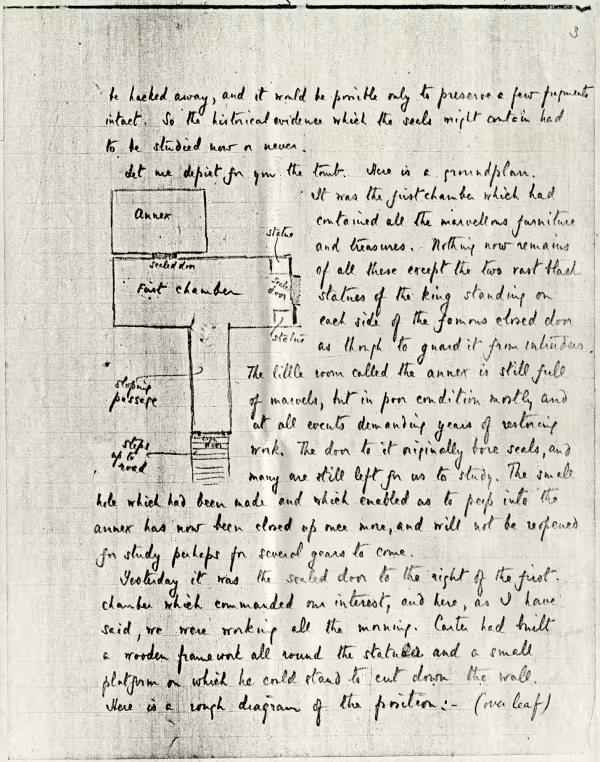Gardiner MSS 47.08.03
Letter from Sir Alan H. Gardiner to his wife including his account of the opening of the burial chamber of Tutankhamun on February 17, 1923, page 3.
Pages 3 and 5 of this letter are photocopies (originals not received by the Griffith Institute), and there is no copy of page 4.

© Griffith Institute,
University of Oxford
be hacked away, and it would be possible only to preserve a few fragments
intact. So the historical evidence which the seals might contain had
to be studied now or never.
Let me depict for you the tomb. Here is a grandplan.
It was the first chamber which had
contained all the marvellous furniture
and treasures. Nothing now remains
[ 𓂀 ] of all these except the two vast black
statues of the king standing on
each side of the famous closed door
as though to guard it from intruders.
The little room called the annex is still full
of marvels, but in poor condition mostly and
at all events demanding years of restoring
work. The door to it originally bore seals, and
many are still left for us to study. The small
hole which had been made and which enabled us to peep into the
annex has now been closed up once more, and will not be reopened
for study perhaps for several years to come.
Yesterday it was the sealed door to the right of the first
chamber which commanded our interest, and here, as I have
said, we were working all the morning. Carter had built
a wooden framework all round the statx[?]/<ue>s and a small
platform on which he could stand to cut down the wall.
Here is a rough diagram of the position:- (overleaf)